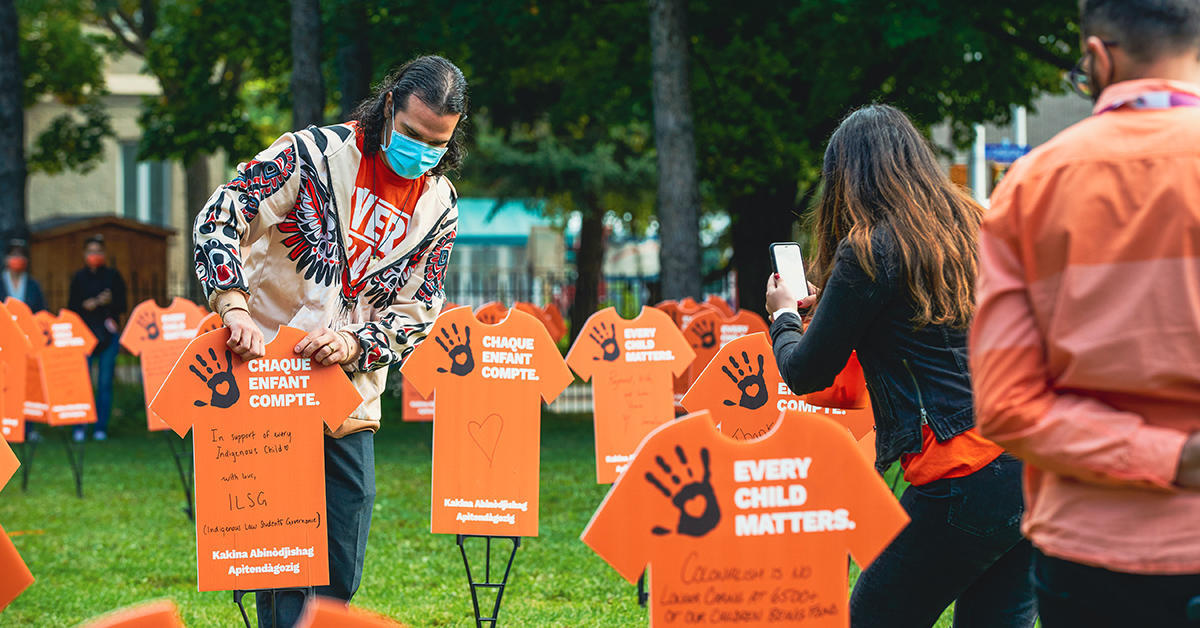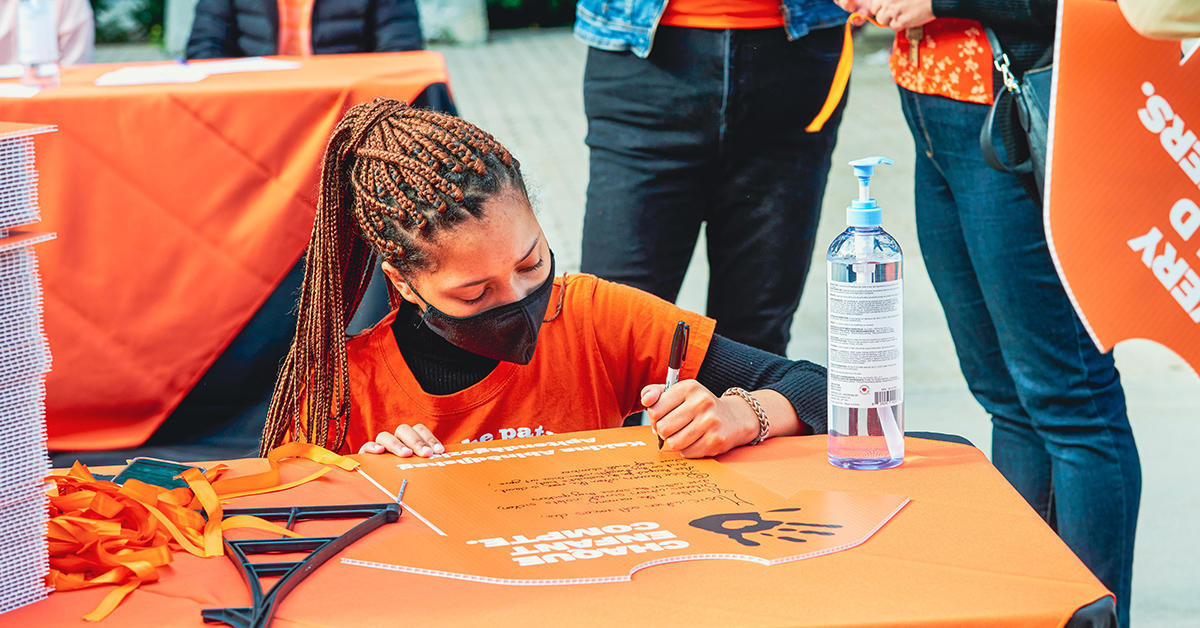
On September 30, Canada will mark the second National Day for Truth and Reconciliation. The day offers an opportunity to reflect on the legacy of the Indian Residential School System and its continuing impact on survivors, their families, and their communities. Importantly, it is also an opportunity to learn and to envision how we can advance reconciliation within our country and communities.
This year there are a number of activities scheduled across the University throughout the week of September 26 – 30, 2022. The week will culminate with an official ceremony in University Square on Friday at 9 a.m. followed by a community feast in FSS4007. Join us on this journey towards healing and building an inclusive community where everyone can feel safe and develop a sense of belonging
Last year, the Office of Indigenous Affairs organized an event on Tabaret Lawn. Students, faculty and staff were encouraged to come together for a ceremony, performances, and reflections from the community.
Those in attendance were invited to leave a personal message on the significance of the day on orange shirt cutouts that were distributed at the event. Over 700 of these shirts and their messages were planted on Tabaret Lawn where they remained for the day.
The National Day for Truth and Reconciliation ended with a conversation between Phil Fontaine, former Assembly of First Nations National Chief, and Darren Sutherland, uOttawa’s Indigenous Community Engagement Officer, about residential schools and the power of education. University of Ottawa President and Vice-Chancellor Jacques Frémont offered opening remarks at the start of the conversation. Mr. Fontaine is recognized as being one of the first Indigenous leaders to publicly speak about his own experiences in a residential school, and for encouraging other survivors to do the same. The courage of survivors to speak about their experiences led to Canada’s national apology in 2008 and the constitution of the Truth and Reconciliation Commission, active from 2009 to 2015.
These events were a successful means of raising awareness about residential schools and promoting reconciliation on campus. The National Day for Truth and Reconciliation was also a reminder of the emotional weight that this work can place on members of the Indigenous community. This year, there will be more support. Individuals and groups from across campus have stepped forward to help organize events, workshops, resources, and awareness campaigns to promote the day and build on the foundation laid last year.
We encourage members of the university community to check out the list of planned events and to participate. Events that have been organized for the days leading up to and including September 30th may mark the National Day for Truth and Reconciliation, but we also remind our friends and colleagues that learning and promoting awareness can take place throughout the year.
